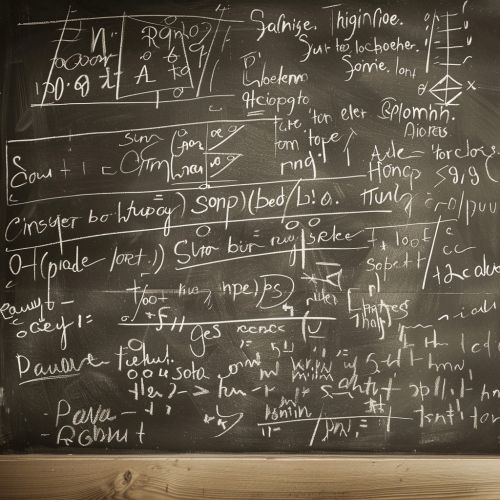Universal Algebra: Difference between revisions
(Created page with "== Introduction == Universal algebra is a field of math that studies algebraic structures themselves, not examples ("models") of algebraic structures. As such, it is a branch of abstract algebra. It studies structures that generalize the algebraic structures such as groups, rings, fields, and vector spaces. <div class='only_on_desktop image-preview'><div class='image-preview-loader'></div></div><div class='only_on_mobile image-preview'><div class='i...") |
No edit summary |
||
| Line 3: | Line 3: | ||
Universal algebra is a field of [[mathematics|math]] that studies algebraic structures themselves, not examples ("models") of algebraic structures. As such, it is a branch of [[abstract algebra]]. It studies structures that generalize the algebraic structures such as groups, rings, fields, and vector spaces. | Universal algebra is a field of [[mathematics|math]] that studies algebraic structures themselves, not examples ("models") of algebraic structures. As such, it is a branch of [[abstract algebra]]. It studies structures that generalize the algebraic structures such as groups, rings, fields, and vector spaces. | ||
[[Image:Detail-77927.jpg|thumb|center|Photograph of a chalkboard filled with complex algebraic equations.]] | |||
== Definition == | == Definition == | ||
Revision as of 11:50, 8 May 2024
Introduction
Universal algebra is a field of math that studies algebraic structures themselves, not examples ("models") of algebraic structures. As such, it is a branch of abstract algebra. It studies structures that generalize the algebraic structures such as groups, rings, fields, and vector spaces.

Definition
The term "universal algebra" is used for two related but distinct concepts. In one definition, a universal algebra is a set equipped with a collection of operations that is closed under some specific laws. In another definition, universal algebra is the study of classes of algebraic structures described by such laws.
History
The concept of a universal algebra was first introduced by Whitehead in his book "A Treatise on Universal Algebra" published in 1898. The modern approach to universal algebra was developed in the mid-20th century by Birkhoff and others.
Basic Concepts
Universal algebra involves the study of algebraic structures as a whole. The basic concepts of universal algebra include:
Algebraic Structures
An algebraic structure consists of a non-empty set A, a collection of n-ary operations on A, and a set of identities, or laws, that these operations must satisfy.
Operations
An operation on a set A is a function that takes n elements of A and returns an element of A. The number n is called the arity of the operation.
Laws
A law is an identity that all operations must satisfy. For example, the commutative law is an identity that states that the order of the operands does not change the result of the operation.
Types of Universal Algebras
There are several types of universal algebras, each with its own set of operations and laws. These include:
Groups
A group is an algebraic structure consisting of a set, an operation (called the group operation), and three laws: the associative law, the identity law, and the inverse law.
Rings
A ring is an algebraic structure that extends the concept of a group by adding a second operation (called multiplication) and two additional laws: the distributive laws.
Fields
A field is a ring with the additional requirement that the multiplication operation is commutative and has an inverse (except for the additive identity).
Vector Spaces
A vector space is an algebraic structure that combines a field and a group in a way that allows for the operations of vector addition and scalar multiplication.
Applications
Universal algebra has applications in various areas of mathematics, including algebraic geometry, number theory, and combinatorics. It is also used in theoretical computer science, particularly in the study of formal languages and automata.
